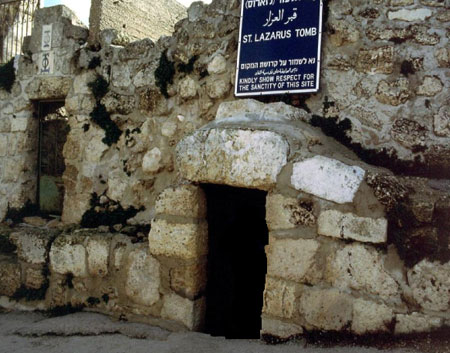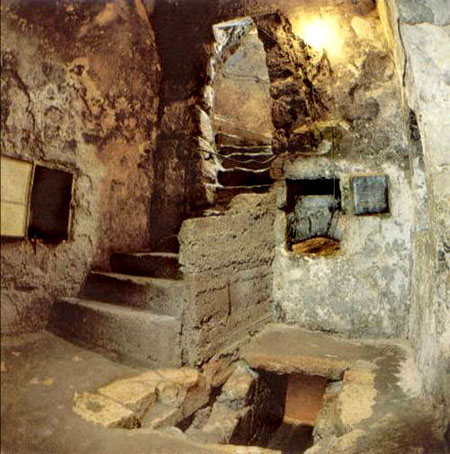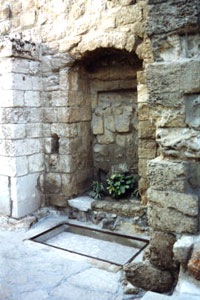 St. Lazarus' tomb, Bethany.
St. Lazarus' tomb, Bethany.
One of the hymns of the Vigil of Lazarus Saturday says that Christ “stole him from among the dead.” I rather like the phrase. Next weekend there will be no stealing, but a blasting of the gates of hell itself. What he does for Lazarus he will do for all.
Lazarus, of course, is different from those previously raised from the dead by Christ (such as the daughter of Jairus). Lazarus had been four days day and corruption of the body had already set in. “My Lord, he stinks!” one of his sisters explained when Christ requested to be shown to the tomb.
 Steps leading to Lazarus' tomb, Bethany.
Steps leading to Lazarus' tomb, Bethany.
Lazarus is an important character in 19th century Russian literature. Raskolnikov, in Crime and Punishment, finds the beginning of his repentance of the crime of murder, by listening to a reading of the story of Lazarus. It is, for many, and properly so, a reminder of the universal resurrection. What Christ has done for Lazarus He will do for all.

I also note that in the story of Lazarus – even in his being raised from the dead – he rises in weakness. He remains bound by his graveclothes. Someone must “unbind” him. We ourselves, having been plunged into the waters of Baptism and robed with the righteousness of Christ, too often exchange those glorious robes for graveclothes. Christ has made us alive, be we remain bound like dead men.
I sat in the tomb of Lazarus because it seemed so familiar.

